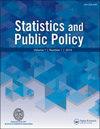控制组不服从情况下用非实验方法复制实验影响评估
IF 1.5
Q2 SOCIAL SCIENCES, MATHEMATICAL METHODS
引用次数: 13
摘要
越来越多关于研究内比较(WSC)的文献探讨了非实验方法是否以及在什么情况下可以成功地复制随机实验的结果。WSCs要求实验和非实验方法评估相同的因果估计。但是,包括治疗分配不依从性在内的实验,在用标准方法测量的因果估计中产生了分歧:基于实验的治疗影响估计(编译者平均因果效应,CACE)仅适用于编译者,而非实验估计适用于所有接受治疗的受试者,包括总是接受治疗的受试者。我们开发了一种新的复制方法,通过使用非实验方法来产生一个可以与实验意向治疗(ITT)影响估计(而不是CACE)进行比较的估计,从而解决了这个问题。我们在特许学校对学生成绩影响的WSC中证明了该方法的适用性。在我们的例子中,随机对照组的一些成员通过注册特许学校而进入治疗。我们表明,当控制组不服从(交叉)发生时,几种包含感兴趣结果的预处理措施的非实验方法可以成功地复制实验ITT影响估计-即使在编译者和总是接受者的治疗效果不同的情况下。本文章由计算机程序翻译,如有差异,请以英文原文为准。
Replicating Experimental Impact Estimates with Nonexperimental Methods in the Context of Control-Group Noncompliance
ABSTRACT A growing literature on within-study comparisons (WSC) examines whether and in what context nonexperimental methods can successfully replicate the results of randomized experiments. WSCs require that the experimental and nonexperimental methods assess the same causal estimand. But experiments that include noncompliance in treatment assignment produce a divergence in the causal estimands measured by standard approaches: the experiment-based estimate of the impact of treatment (the complier average causal effect, CACE) applies only to compliers, while the nonexperimental estimate applies to all subjects receiving treatment, including always-takers. We develop a new replication approach that solves this problem by using nonexperimental methods to produce an estimate that can be compared to the experimental intent-to-treat (ITT) impact estimate rather than the CACE. We demonstrate the applicability of the method in a WSC of the effects of charter schools on student achievement. In our example, some members of the randomized control group crossed over to treatment by enrolling in the charter schools. We show that several nonexperimental methods that incorporate pretreatment measures of the outcome of interest can successfully replicate experimental ITT impact estimates when control-group noncompliance (crossover) occurs—even when treatment effects differ for compliers and always takers.
求助全文
通过发布文献求助,成功后即可免费获取论文全文。
去求助
来源期刊

Statistics and Public Policy
SOCIAL SCIENCES, MATHEMATICAL METHODS-
CiteScore
3.20
自引率
6.20%
发文量
13
审稿时长
32 weeks
 求助内容:
求助内容: 应助结果提醒方式:
应助结果提醒方式:


